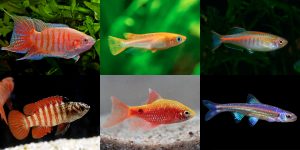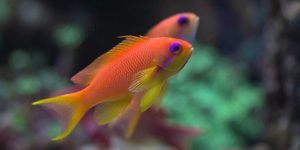New research published in Science Advances values the global marine aquarium trade at $2.15 billion.
- University of Portsmouth research marks first formal study of its kind.
- The new study represents a formal estimate of the global marine aquarium trade.
- 55 million fish, corals, and other invertebrates worth $2.15 billion are sold annually.
- Research ultimately hopes to drive and incentivize sustainability and conservation.
A paper newly published in Science Advances and led by University of Portsmouth professor Gordon Watson has valued the global saltwater aquarium industry at $2.15 billion – equivalent to £1.69 billion at today’s ever-fluctuating exchange rate.
Professor Watson and his team extrapolated data from the UK, Italy, and the USA. A global value of $2.15 billion or £1.69 billion puts the marine aquarium trade on par with international tuna fisheries, for example, in terms of economic significance.
Over Six Million Hobbyists
Further estimates, meanwhile, put the number of marine aquarium retailers worldwide at over 8,000. They supply some 55 million animals to an estimated 6.7 million saltwater fish tank hobbyists globally. Within the trade and hobby, the pioneering, newly published University of Portsmouth study on the industry points toward 500 most-regularly traded marine aquarium species, 210 of which are fish, the rest being popular corals and other invertebrates.
Of these 500 species, Watson and his team identified 25 as ‘extremely high risk’ of being over-collected from the wild. These species included saltwater aquarium hobby staples like hermit crabs and Bangaii cardinal fish. That’s despite Bangaii cardinal fish, in particular, being successfully bred in captivity in huge numbers. This fact, if nothing else, points sharply toward the continuing need for conservation-led education among those feeding the supply of wild-caught marine fish to the home aquarium trade.
With that in mind, it’s hoped that their findings will incentivize all-new sustainability and conservation measures within the saltwater aquarium hobby – particularly as it relates to reef tanks. That includes supporting local coral reef protection and restoration initiatives worldwide.
Fairtrade Mark-Style Certification
Professor Watson and his University of Portsmouth colleagues are also calling for the introduction of an international certification-style system, akin to the Fairtrade Mark, to support coral reef protection and restoration efforts.
Their paper concluded by pointing toward an overall largely positive future for the global marine aquarium trade, both in terms of revenue and conservation. However, it also wrapped up by stressing the continued need for sustainable practice incentivization and ongoing education among consumers and those working in the trade alike.
That’s in addition to certified over-exploitation assessments—which would need to be performed regularly and at scale worldwide to be effective—and ongoing, real action surrounding global climate change, thus ensuring the international marine aquarium trade remains a force for good and a paradigm of sustainability in the future.






